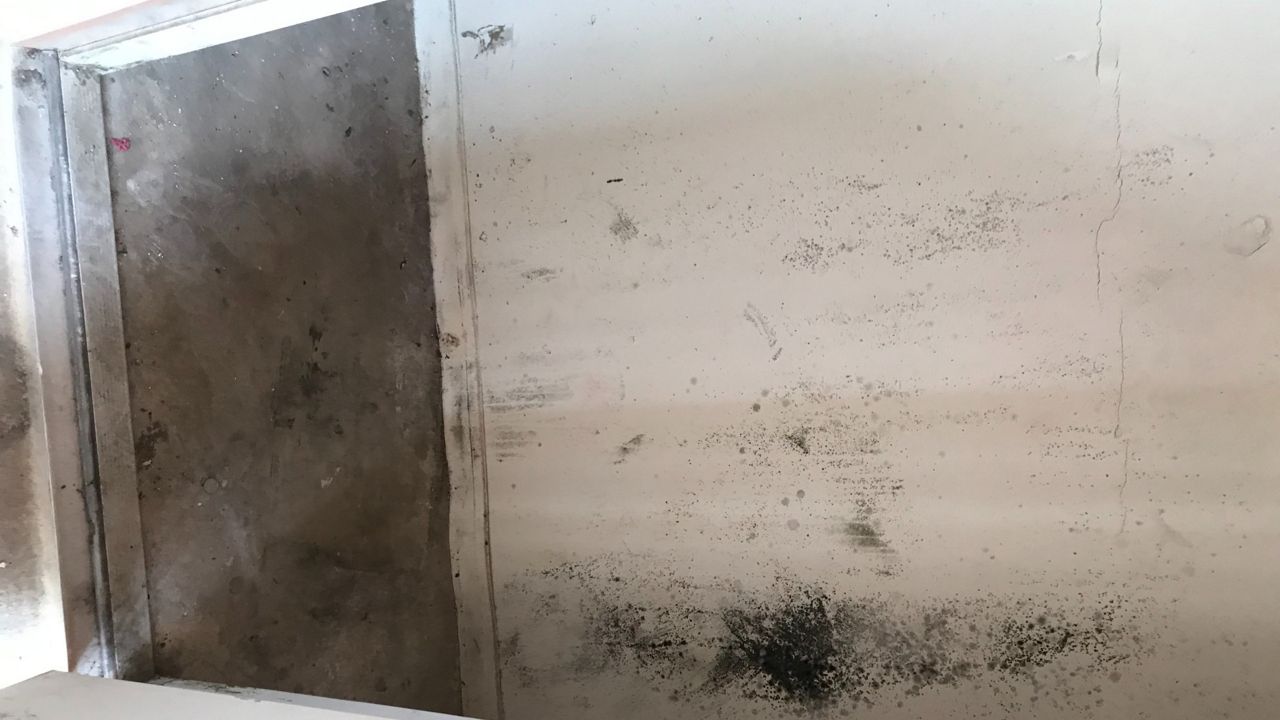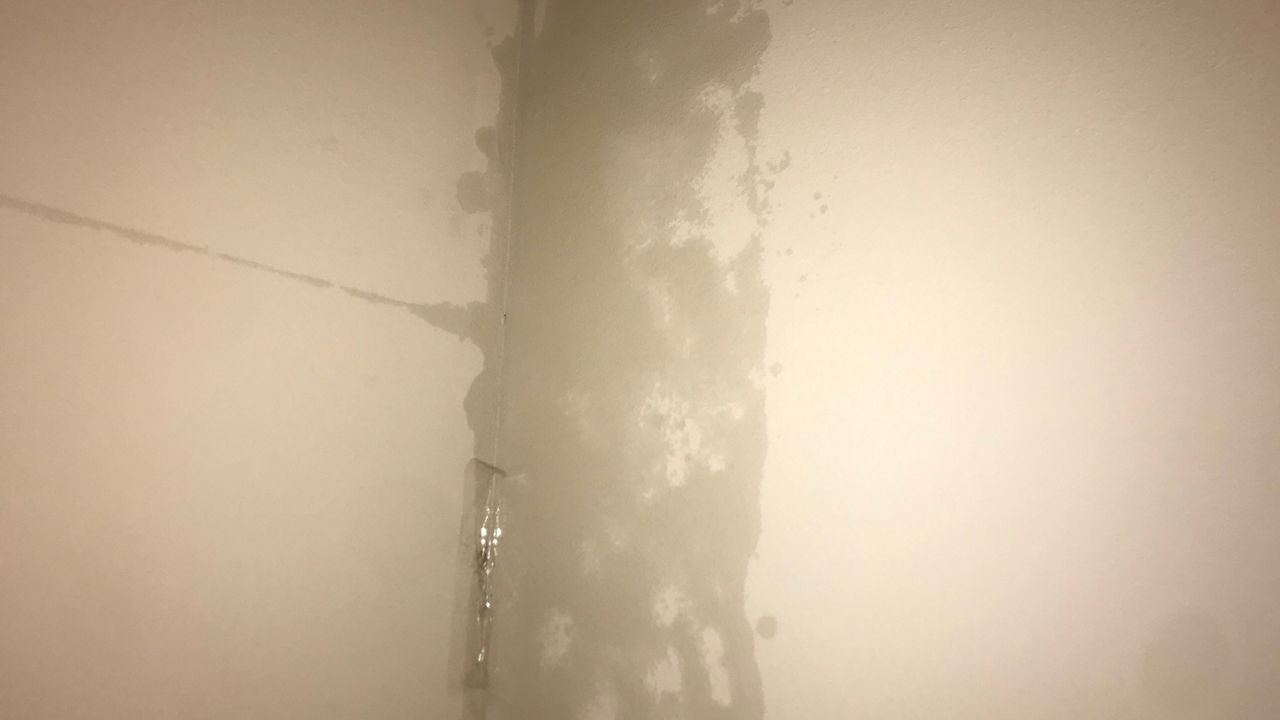AUSTIN, Texas — Hundreds of people in Central Texas are living in hotels, temporary housing, with friends or family, even shelters.
Many renters were forced to leave their apartments because of unlivable conditions from storm damages, which have yet to be repaired months later.
Maria Romero and Arthur Jimenez scroll through their phone, looking at the last images of their apartment.
The walls are spotted with mold, water spots, leaks cover the ceilings and their floors are bare cement.

Like so many other renters in Texas, a water pipe burst in their building, flooding their apartment. Romero, Jimenez and their two kids were forced to evacuate.

The couple not only lost their home of four years, but almost everything in it.
“We didn’t have much, but he had so much there, it was his first home,” Jimenez said.
It’s a home they can never go back to. They terminated their lease because repairs were taking too long and they couldn’t afford to wait.
Romero started crying just talking about it.
For the last two months, the family of four shared a bed and couch at their in-laws’ mobile home in Cedar Park, Texas. Now, most of their possessions fit in a few bags and a laundry basket.
This is an all too familiar story for tenant rights groups who have received thousands of calls from renters, like Romero and Jimenez.
And the majority of those renters are minorities who live in low income apartment complexes.
In Austin alone, the code department responded to 773 complaints related to the storm. Inspectors are working 157 active cases and have issued 272 notices of violation.
Romero and Jimenez lived at Rosemont Oak Valley, which has 12 code violation cases since the storm.
Spectrum News 1 contacted Rosemont Oak Valley’s property management company back in March and a spokesperson said they were struggling to find contractors to make the repairs.
When contacted again, they said it no longer manages the property. According to application records, the Strategic Housing Finance Corporation of Travis County owns it.
Director of Real Estate Development Robert Onion told us the SHFC isn’t responsible for managing the property.
“I feel like if Rosemont had done their job, I feel like I wouldn’t be in this position right now,” Romero said.
Jimenez lost his job to the pandemic about a year ago, so Romero brings in the only source of income for their family.
And while the family is no longer in Austin, Romero still has to go to work in the city every morning. She says she can’t drive because of the current medications she’s taking.
Jimenez wakes up every morning to drive Romero to her job. She’s a senior patient care coordinator at Austin Regional Clinic. She used to work from home, but Romero says dealing with the storm damages affected her productivity and she had to go back to work at the office.
However, Friday was the last time she had to make the commute as she no longer works at the clinic.
The family was unable to find affordable housing in the city and their only option is to move to a family property in Kingsland, 70 miles away from work, and both of their vehicles struggle to make the, roughly, 30 mile trip to Austin as it is.
Jimenez has been working with Austin Tenants Council to unite his neighbors and help others going through the same struggle.
At an April meeting, Travis County Housing Authority board of commissioners agreed to set up a tenants’ council and work with Rosemont residents on finding solutions.
He says it’s unfair that families are struggling, while landlords continue to collect rent.
“People are having to stay at hotels or with family and that’s not cheap, so it’s like what rent money do you want?” Jimenez said.
In Austin, renters account for 55% of the population, and that number is higher in minorities. Renters make up 71% of Blacks and 65% of Hispanics, which is why so many are disproportionately experiencing displacement.
Even the help from nonprofits wasn’t enough to keep Romero and Jimenez from losing their home and livelihood.
Now, the only support system they can truly rely on is each other.



